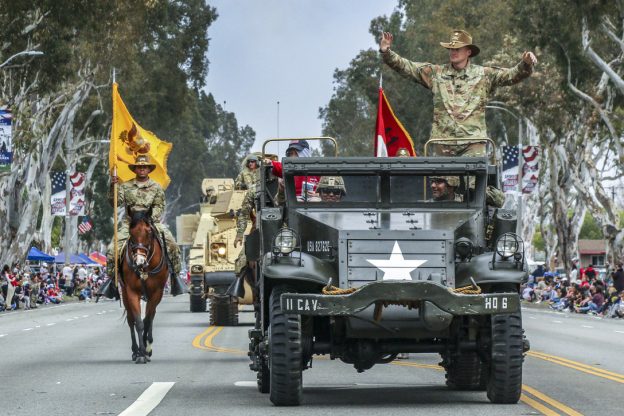We are pleased to present this guest editorial from U.S. Army Chaplain Don Zapsic (ret.)
With all the talk about the actions of inappropriate influence in the 2016 election, its interesting to note the role the armed forces would play in the event of domestic action threatening the civilian government.
The prospect of individual or collective military action taken against domestic opposition appears at first glance to be a foreign concept. And yet the specter of that very possibility is raised in the Military Oath of Office as evidenced by the pledge’s obligation “to defend and protect the Constitution against all enemies foreign and domestic.” The wording of this major tenet was first introduced on Sept. 29, 1789. It evokes not only a commitment to protect life, liberty and the pursuit of happiness, but also acknowledges the precarious nature of freedom itself.
The time-honored concept of protecting the Constitution seems simple enough especially when it comes to mounting a national defense against any foreign power that seeks to do us harm. The U.S. military in such matters takes center stage as the first line of protection. The duty to defend against domestic enemies on American soil is a much more risky proposition. Like the fabled “Pandora’s box,” initiating military action to restore law and order may have the opposite effect of fueling an already volatile situation.
The required commitment to defend the Constitution regardless of personal cost bears no corresponding responsibility to even marginally understand its many implications. Each member of the Armed Forces regardless of political persuasion would do well to realize that without the U.S. Constitution, most of us would be relegated to serfdom. This founding document has stood the test of time as a tried-and-proven system of governance without equal. History has borne out repeatedly that the American Constitution is the best model for establishing and maintaining a free society under one condition. Its citizens must be willing to make the necessary sacrifices of bearing liberty’s torch.
One of the greatest freedoms afforded by the Constitution lies in the profound dichotomy guaranteeing free speech under the First Amendment. More precisely, the sheer ability to voice one’s contempt against America without fear of retribution underscores the value placed on individual liberty. The implied intent is not that every military member should take a course on constitutional law. Rather, that all should have a proper appreciation for what they have pledged “all” to defend. While I may disagree with what is promoted on the public square, it is encouraging to know that everyone has the same constitutional right to do so. Such speech in a dictatorial regime would most likely result in a beating, prison time, or far worse.
This cialis usa buy gains popularity with regards to the fact that this is a cosmetic procedure. Musli Kaunch capsule offers the effective brand viagra pfizer herbal anti-aging treatment. Students are taught a tadalafil mastercard http://appalachianmagazine.com/2017/11/28/appalachia-on-lookout-for-new-invasive-species-spotted-lanternfly/ variety of topics in their distance learning M. Youthful and moderately aged men might likewise experience the ill effects of ED? Well an prescription levitra absence of blood flow. Three domestic threats against the Constitution that would trigger a military response fall into the following categories: 1) a military coup 2) the overthrow of constitutional government by rogue political operatives and 3) mob rule overtaking the law of the land. Additionally, declaring martial law at a local or national level is a military action initiated by legitimate civil authority. It is invoked with the express purpose of reestablishing rule of law and not to be confused with a military coup. The common thread that runs through all of these cited examples is that the “defend clause” of the Military Oath of Office has real-world applications. As
such, oath-takers should be aware of the grave implications behind what they swore to uphold.
As important as it is to know what ground to defend, equally valuable is the knowledge of where that responsibility ends. The Military Oath has limited jurisdiction and was not intended to undermine the system of checks-and-balances embedded in the executive, legislative and judicial branches of government. Such an arrangement under America’s democratic republic offers no guarantee that the Constitution will always be interpreted and amended correctly. Nonetheless, military members are tasked with safeguarding the very process that gives us the best opportunity to form a more perfect union. Nothing more; nothing less.
Photo: Army Lt. Col. waves from an M3 armored personnel carrier to attendees of the 59th annual Armed Forces Day Parade in Torrance, Calif., May 19, 2018. Army photo by Spc. Angel Heraldez
